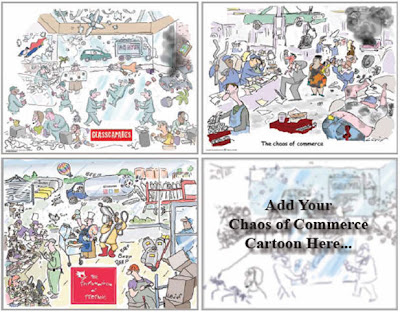Are you managing your reputation, or is your reputation managing you?
Where do you look to find out what others are saying about you?
If there are negative assessments, what can you do to fix them?
Reputation management has become one of the most valuable and confounding tools businesses face. At one time, a company’s reputation was based on word-of-mouth amongst small parties and, on larger scales, in magazine and newspaper write-ups. Now that nearly every consumer with a computer is a critic with potential to wreak wide-spread havoc, eliminating negative opinions of one’s company is vital to success.
Negative feedback can be difficult and nearly impossible to remove. Once a customer has a bad experience with a company, that one bad experience can can cause a lot more than just headaches to the business; it can cost real dollars and cents in lost business and lost opportunities from those who use word of mouth to determine where their hard earned paychecks are spent. It can take years for a company with a bad reputation to recover, and many do not recover at all.
The best way for a company to manage its reputation is not to try to repudiate the negativity, but to address it head on by improving those poor practices. Better still, a company can discover where their problems lie in the first place and alter the problems before they become a part of the company’s identity. This can involve spotting a poorly functioning product, understanding when services are not up to par, and possibly most importantly, knowing when one’s customer service staff is performing below acceptable standards.
Finding customer service issues can take little time and effort if given the right approach. Molloy Business Development helps companies find their weaknesses by listening to actual calls and by mystery shopping. This gives the company the best idea of what problems exist and how they can be best addressed, on an individual basis and as a whole. When a company is proactive, they can stop a negative reputation before it gets started.
Reputation management has become one of the most valuable and confounding tools businesses face. At one time, a company’s reputation was based on word-of-mouth amongst small parties and, on larger scales, in magazine and newspaper write-ups. Now that nearly every consumer with a computer is a critic with potential to wreak wide-spread havoc, eliminating negative opinions of one’s company is vital to success.
Negative feedback can be difficult and nearly impossible to remove. Once a customer has a bad experience with a company, that one bad experience can can cause a lot more than just headaches to the business; it can cost real dollars and cents in lost business and lost opportunities from those who use word of mouth to determine where their hard earned paychecks are spent. It can take years for a company with a bad reputation to recover, and many do not recover at all.
The best way for a company to manage its reputation is not to try to repudiate the negativity, but to address it head on by improving those poor practices. Better still, a company can discover where their problems lie in the first place and alter the problems before they become a part of the company’s identity. This can involve spotting a poorly functioning product, understanding when services are not up to par, and possibly most importantly, knowing when one’s customer service staff is performing below acceptable standards.
Finding customer service issues can take little time and effort if given the right approach. Molloy Business Development helps companies find their weaknesses by listening to actual calls and by mystery shopping. This gives the company the best idea of what problems exist and how they can be best addressed, on an individual basis and as a whole. When a company is proactive, they can stop a negative reputation before it gets started.



